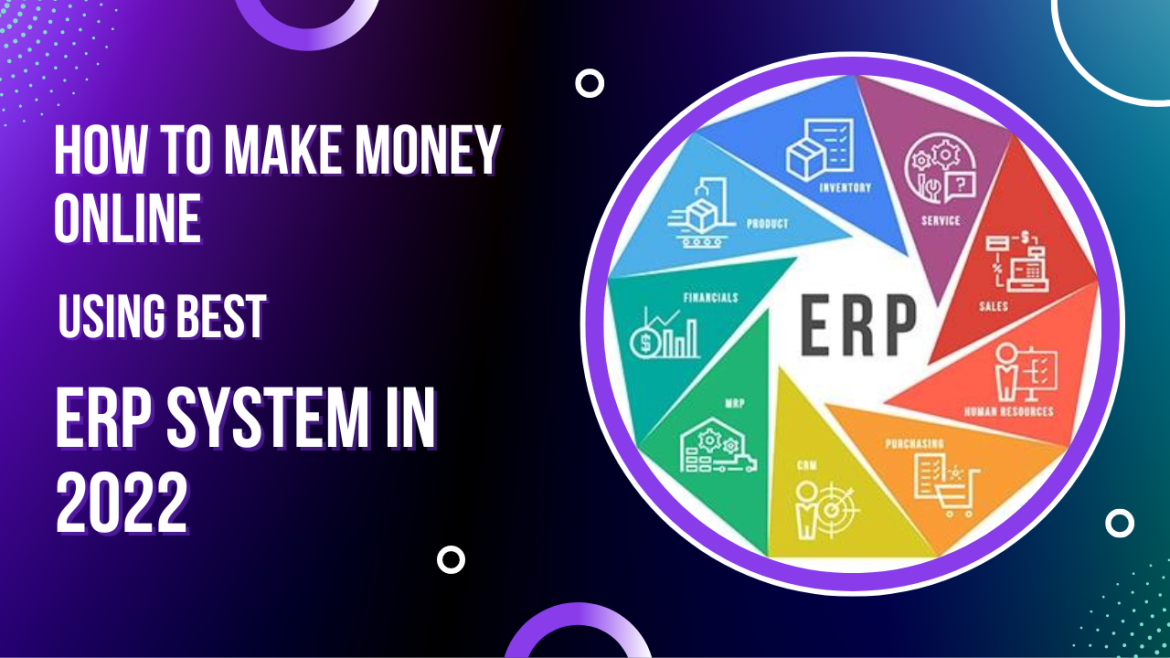As the world becomes more and more digitized, businesses are looking for ways to make money online. One of the best ways to do this is by using an ERP system. ERP systems allow businesses to manage their finances, operations, and customer relations online. In 2022, the best ERP system to use is Dynamics 365.
Dynamics 365 is a cloud-based ERP system that allows businesses to manage their finances, operations, and customer relations online. It is a powerful system that can be used by businesses of all sizes. Dynamics 365 is also very easy to use, which makes it perfect for businesses that are just starting.
Dynamics 365 is also very affordable. It is one of the most affordable ERP systems on the market. This makes it a great option for businesses that are on a tight budget.
If you are looking for a way to make money online using an ERP system, Dynamics 365 is the best option. It is a powerful system that is easy to use and affordable.
How to Choose the Best ERP System for Your Business
ERP (Enterprise Resource Planning) systems are essential tools for businesses of all sizes. They provide a way to manage and integrate all of the different aspects of a company into a single system. But with so many different ERP systems on the market, it can be difficult to determine which one is the best fit for your business. Here are some tips to help you choose the right ERP system for your business.
1. Consider your business size and needs.
Not all ERP systems are created equal. Some are designed for small businesses, while others are designed for large enterprises. It’s important to choose a system that is compatible with the size and needs of your business.
2. Consider your budget.
ERP systems can be expensive, so it’s important to consider your budget when making a decision. There are a variety of different systems available at a range of different price points.
3. Consider your industry.
Not all ERP systems are suitable for all industries. It’s important to choose a system that is tailored to the specific needs of your industry.
4. Consider your company’s culture.
Not all ERP systems are equally user-friendly. It’s important to choose a system that is compatible with the culture of your company.
5. Consider your company’s IT infrastructure.
Not all ERP systems are compatible with all IT infrastructures.
How to Benefit from ERP System in Your Business
Enterprise Resource Planning (ERP) systems are designed to help businesses manage their resources more effectively. An ERP system can help your business to improve its efficiency, productivity, and competitiveness. Here are some of the ways that you can benefit from using an ERP system in your business:
1. Improved Efficiency
An ERP system can help you to automate your business processes, which can improve your efficiency. An ERP system can help you to manage your resources more effectively, which can help you to save time and money.
2. Improved Productivity
An ERP system can help you to manage your resources more effectively, which can help you to improve your productivity. An ERP system can help you to track your progress, so you can identify where you need to make improvements.
3. Improved Competitiveness
An ERP system can help you to manage your resources more effectively, which can help you to improve your competitiveness. An ERP system can help you to streamline your business processes, which can help you to save time and money.
How to Select the Right ERP System for Your Business
When it comes to selecting the right ERP system for your business, there are a few key factors to consider. Here are some tips to help you make the best decision for your company:
1. Make a list of your business needs
The first step in selecting the right ERP system is to make a list of your business needs. What features and functions are essential to your company? What processes do you want to automate? What reporting and analytics are important to you? Once you have a list of your needs, you can start to evaluate ERP systems that offer those features. This will help you quickly narrow down your options and find the system that’s best suited for your business.
2. Consider your budget
Another important factor to consider when selecting an ERP system is your budget. How much can you afford to spend?
There are a variety of ERP systems available, from free open-source systems to expensive enterprise-level systems. Choose the system that fits your budget and meets your business needs.
3. Consider your company size
Another thing to consider when selecting an ERP system is your company size. Not all ERP systems are designed for small businesses.
Some systems are better suited for larger businesses with more complex needs. If you’re a small business, be sure to choose an ERP system that’s designed for your size.
How to Implement an ERP System in Your Business
A comprehensive ERP system can provide your business with a range of advantages, including improved efficiency, streamlined operations, and enhanced decision-making capability. However, successfully implementing an ERP system can be a daunting task. Here are a few tips to help you get started:
1. Assess your business needs
The first step in implementing an ERP system is to assess your business needs. What functions do you hope to improve with an ERP system? What areas are you most looking to optimize? Make sure to take into account your business size, industry, and other specific needs.
2. Choose the right ERP system
Not all ERP systems are created equal. Make sure to choose one that is a good fit for your specific business needs. Consider the features and functionality that are important to you, as well as the level of customization that is possible.
3. Plan and prepare
Once you have chosen an ERP system, it is important to plan and prepare for the transition. This includes creating a project plan, mapping out your data, and training your staff on how to use the new system.
4. Implement the system
Once you are ready, it is time to implement the ERP system. Be prepared for some bumps in the road – it is not uncommon for there to be some glitches during the initial rollout. However, with careful planning and execution, you should be able to successfully implement your ERP.
Optimize Your ERP System for Maximum Efficiency
An ERP system is an important part of any business. It is used to manage and track important data, and it can help increase efficiency and productivity. However, if it is not properly optimized, it can actually decrease efficiency and cause problems.
Here are a few tips for optimizing your ERP system:
1. Make sure the system is properly configured to meet your specific needs.
2. Train your employees on how to use the system properly.
3. Use the system regularly and track the results.
4. Make sure the system is kept up-to-date with the latest software updates.
5. Use the system to its full potential and customize it to meet your specific needs.
6. Take advantage of the system’s reporting features to track data and improve efficiency.
7. Make sure the system is integrated with other software applications used in your business.
8. Use the system to manage and track inventory and orders.
9. Use the system to manage and track customer data.
10. Use the system to manage and track financial data.







